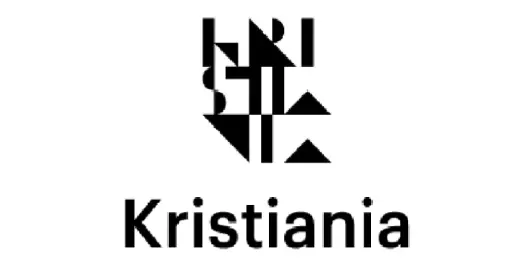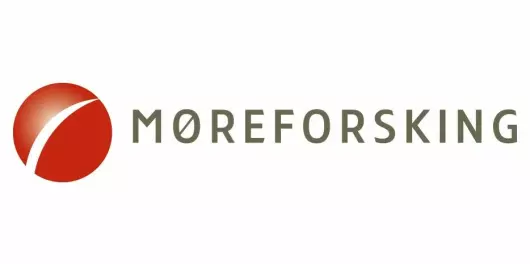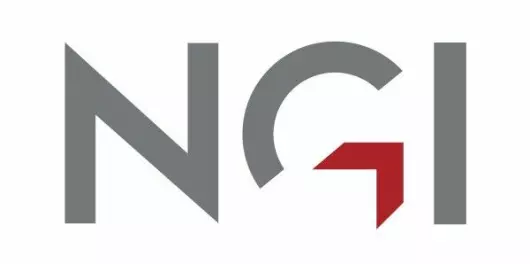Universitetet i Oslo
The University of Oslo is Norway’s oldest and highest ranked educational and research institution, with 28 000 students and 7000 employees. With its broad range of academic disciplines and internationally recognised research communities, UiO is an important contributor to society.
The Department of Media and Communication's (IMK) main purpose is to conduct research, education and dissemination on the modern media, their importance for society and for people. IMK has approximately 50 employees, including 10-12 doctoral candidates and postdoctoral fellows. There are around 500 active students on different levels. The department offers one-year study program on the Bachelor's level and a Bachelor's degree in media and communication, in addition to Master's degrees in Media Studies, Journalism, Political Communication and Screen Cultures. IMK is a multidisciplinary department, based on the academic traditions of the humanities and social sciences. The department is ranked as one of the top 50 media and communication departments in the world (QS Ratings).
Job description
A Doctoral Research Fellowship (SKO 1017) in Media Studies is available at the Department of Media and Communication, University of Oslo. The position is affiliated with the research project “PHOTOFAKE – Visual Disinformation, the Digital Economy and the Epistemology of the Camera Image,” funded by the Research Council of Norway and coordinated by the School of Economics, Innovation and Technology, Kristiania University College. The Department of Media and Communication, University of Oslo, is a partner in the project.
The PhD candidate will work closely with Professor Liv Hausken who is responsible for the research effort of PHOTOFAKE taking place at the Department of Media and Communication, University of Oslo, which will be the candidate’s workspace.
More about the position
Presentation of the research project PHOTOFAKE
PHOTOFAKE investigates visual aspects of the current crisis of disinformation, a crisis which is exacerbated by AI-altered and generated material that perceptually appears to be camera-derived. The purview of the project involves a multitude of seemingly camera-derived material that can be employed for manipulation – from the most rudimentary to the AI-enhanced videos of tomorrow. Media organizations struggle to get a handle on such material and the threat it poses by developing manuals and practices for fact-checking visual materials.
PHOTOFAKE offers research-based guidelines for the optimization of such fact-checking manuals and practices. The research is mainly organized in three work packages, WP1, 2 & 3.
WP1 explores how contemporary manuals for detecting audiovisual disinformation may be optimized by drawing on the history and theory of film and photography. This involves a critical reassessment of the vocabulary and the implicit media theoretical assumptions underpinning the manuals.
WP2 explores how actual practices of fact-checking audio-visual material in news media may be optimized given internal constraints as well as external pressures from a global digital media ecology largely outside their control. This involves exploring the institutional practices in which the manuals are embedded, including the procedural and technological tools involved.
WP3 explores what new alteration technologies and camera practices with deceptive potential are now evolving. This, in order to improve the understanding of the material the manuals and practices must be ready to guard against.
Contact information and more about the research project PHOTOFAKE can be found here.
Expectations for the PhD-project:
The PhD-project forms part of WP3. It must find a productive research strategy for addressing the objective of WP3 outlined above, so that it can provide relevant inputs to the challenges dealt with in WP1 and WP2 and productively contribute to the overall objective of PHOTOFAKE.
The PhD-candidate is expected to develop a research project for the PhD based on the described objectives of PHOTOFAKE. This project should be based on concrete investigations and account for its empirical and theoretical contributions to PHOTOFAKE. While the PhD-project thereby should serve the overall objective of PHOTOFAKE, it is at the same time expected to be of value as a research intervention in its own right. The project could be comparative, it could involve historical perspectives as well as various theoretical perspectives.
It is advantageous if the PhD-project explores how some of the visual sub-cultures in online forums and social media contribute to making camera practices more malleable and open to alteration and generation practices. Camera practices that (even if this was not a main purpose behind their invention) may come to support disinformation efforts and also practices that potentially bear on the epistemology of photographic images by, for example, undermining the credibility of camera-images and contribute to redefine how photographic imaging may function and operate is of particular interest.
The empirical material investigated in the PhD-project may for example involve camera practices, technologies in photographic and related equipment, as well as attitudes among users, for example concerning deception by means of alteration practices. While media studies, potentially informed by theory on photography and moving images, may be a productive vantage point, perspectives from computer science, technology studies, visual culture, digital media and the digital attention economy may be also be productive.
While the PhD-project is expected to help amend the challenges the current information disorder has brought, the PhD-project is also expected to share in PHOTOFAKE’s ambition to contribute to a theoretically and philosophically pertinent intervention beyond the immanently useful and provide a better basis for an interdisciplinary understanding of photographic epistemology which will be valid throughout the decade. In short, PHOTOFAKE wants to combine applied research with more fundamental investigations into how visual media lodged within a digital attention economy, remade by computational developments, bear on the knowledge produced and circulated.
The person appointed will be affiliated with the Faculty's organized research training. The academic work is to result in a doctoral thesis that will be defended at the Faculty with a view to obtaining the degree of PhD. The successful candidate is expected to join the existing research milieu or network and contribute to its development. Read more about the doctoral degree.
The appointment is for a duration of 3 years. All PhD Candidates who submit their doctoral dissertation for assessment with a written recommendation from their supervisor within 3 years or 3 ½ years after the start of their PhD position, will be offered, respectively, a 12 or 6 month Completion Grant.
Qualification requirements
- A Master's degree or equivalent in media and/or film studies, or related fields such as digital media, visual culture, or technology studies. The Master's degree must have been obtained and the final evaluation must be available by the application deadline.
- As PHOTOFAKE is interdisciplinary in nature, the successful candidate might have a background from a range of fields in the humanities and the social sciences, including but not limited to media studies, film studies, digital media, visual culture and technology studies.
- The candidate's research project must be closely connected to the objectives (of PHOTOFAKE and WP3) as described above.
- The project proposal should account for its empirical and theoretical contributions to PHOTOFAKE as well as to the field of research more generally.
- Fluent oral and written communication skills in English, see Language requirements. Ability to communicate in Norwegian or another Scandinavian language is desirable, but not necessary.
- Personal suitability and motivation for the position.
To be eligible for admission to the doctoral programs at the University of Oslo, applicants must, as a minimum, have completed a five-year graduation course (Master’s degree or equivalent), including a Master’s thesis of at least 30 ECTS. In special cases, the Faculty may grant admission on the basis of a one-year Master course following an assessment of the study program’s scope and quality.
In assessing the applications, special emphasis will be placed on:
- The project's originality, scientific merit and innovation
- The proposed project’s relevance for PHOTOFAKE
- The applicant's estimated academic and personal ability to complete the research training and his/her research project within the stipulated time frame
- Good collaboration skills and an ability to join and contribute to the Department’s research environment and interdisciplinary academic communities
- Research ambition such as demonstrated through academic publications and conference presentations is advantageous, but not a requirement.
Provided the conditions above are met, special preference may be given to:
- Candidates who are well versed in relevant online media sites and visual sub-cultures
- Candidates who are well versed in relevant photographic practices, including video and other audio-visual formats
- Candidates who have graduated with excellent results.
We offer
How to apply
The application must include:
- Application letter describing the applicant’s qualifications and motivation for the position
- Curriculum Vitae (with a list of education, positions, teaching experience, administrative experience and other qualifying activities, publications. Information about publications should preferably include DOI or downloadable links.
- Educational certificates of your Bachelor’s and Master's degrees. Applicants with education from a foreign university must attach an explanation of their university's grading system
- Documentation of Language requirements
- Project description, including a detailed progress plan for the project (3 - 5 pages, maximum 14,000 characters. See Template for project descriptions)
- A list of 2-3 reference persons (name, relationships to the candidate, contact information)
- DO NOT include any certificates or transcripts that are not listed above
Please note that all documents must be in English or a Scandinavian language.
Other educational certificates and master thesis are not to be submitted with the application, but applicants may be asked to submit such information or works later
The application with attachments must be delivered in our electronic recruiting system, jobbnorge.no.
Short-listed candidates will be invited for an interview.
Formal regulations
See also regulations as well as guidelines for the application assessment process and appointments to research fellowships.
Following the Freedom of Information Act (Offentleglova) § 25, Chapter 2, demographic information about the applicant may be used in the public list of applicants even if the applicant opts out from the entry in the public application list.
No one can be appointed for more than one PhD Research Fellowship period at the University of Oslo.
The University of Oslo has an Acquisition of Rights Agreement for the purpose of securing rights to intellectual property created by its employees, including research results.
The University of Oslo aims to achieve a balanced gender composition in the workforce and to recruit people with ethnic minority backgrounds.
Contact information
Professor Liv Hausken, for information about the position
HR Adviser Mira Kramarova, for questions on how to apply
Apply for position













